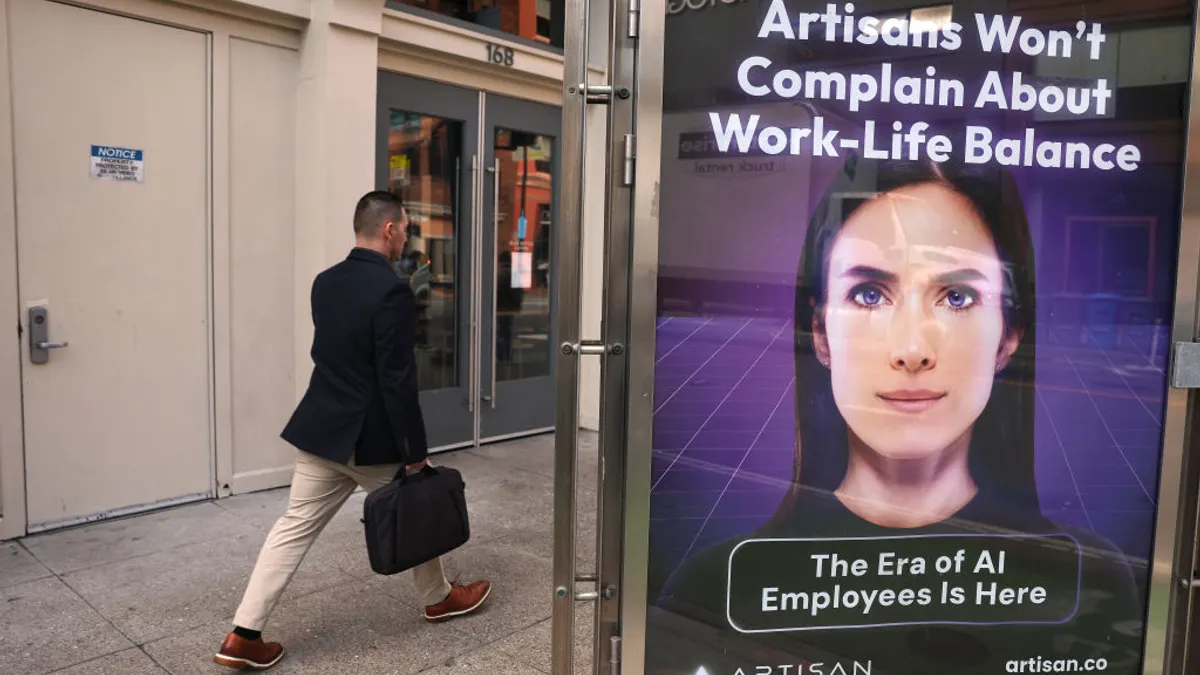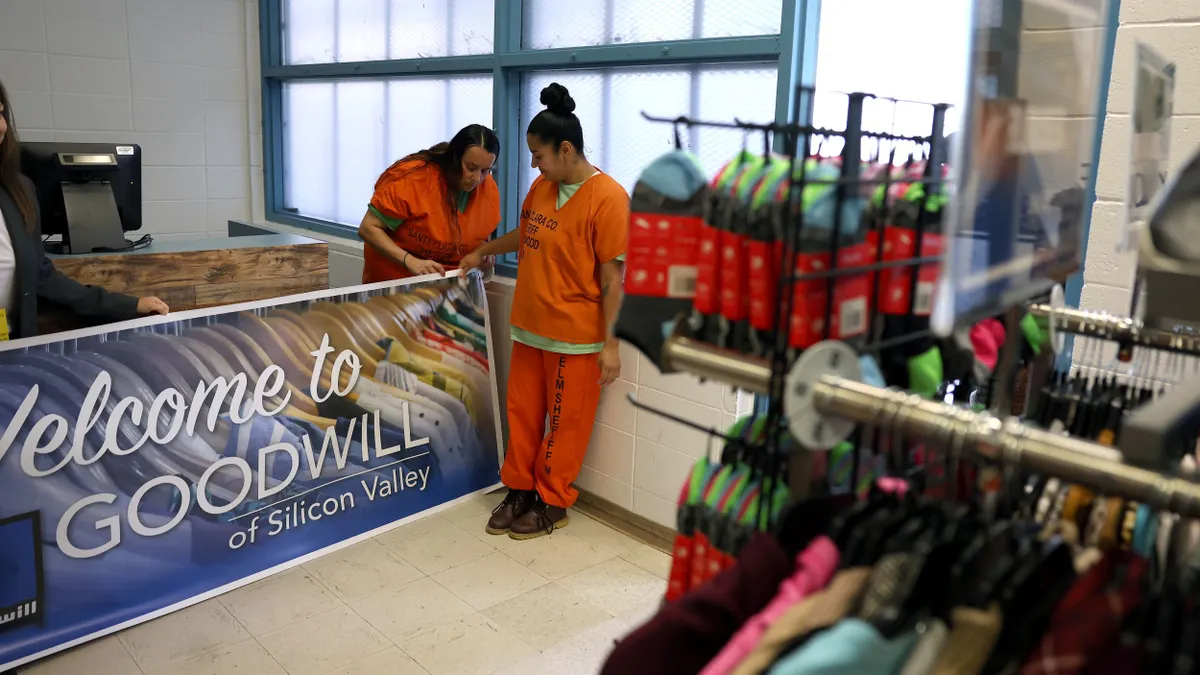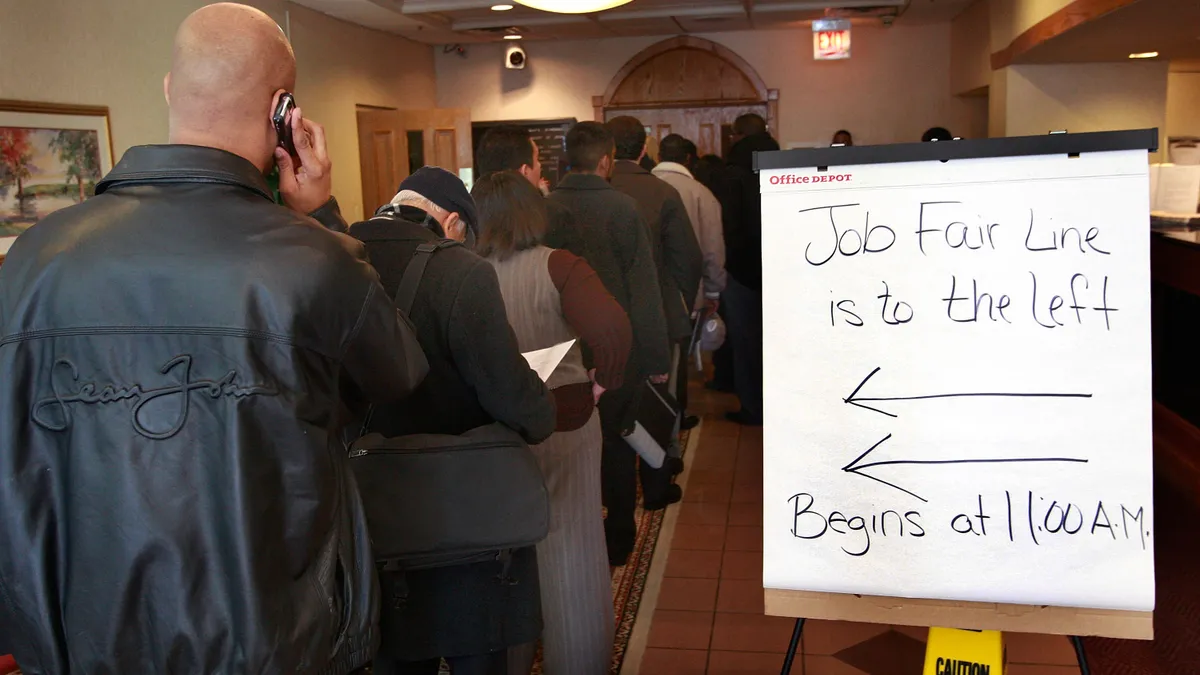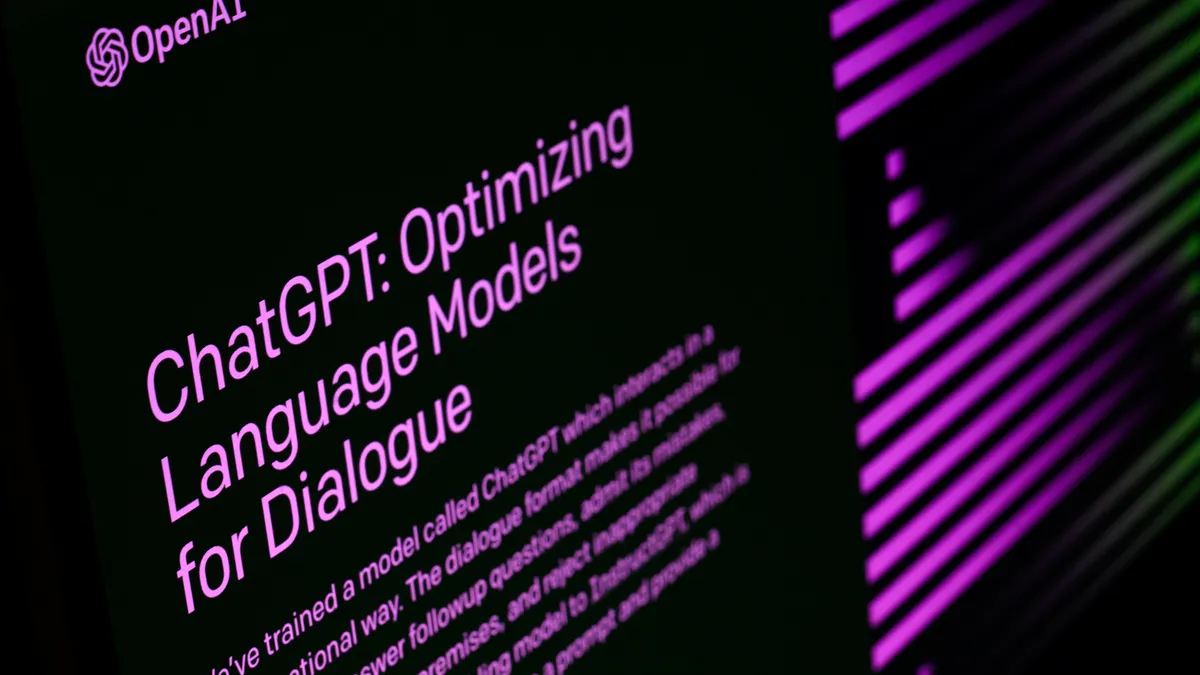As the Securities and Exchange Commission ponders new mandates for 2022, HR may find itself center stage.
In 2020, SEC amended a rule to require companies to disclose "human capital resources" if they are "material to an understanding of the registrant's business" without much detail. That could change this year. A Notice of Proposed Rulemaking is expected in April regarding board diversity, and an updated NPRM regarding human capital management disclosures could come imminently.
Due to these seemingly likely changes, investors are pressuring companies on all aspects of environmental, social and governance issues, Don Delves, leader of the executive compensation practice in North America for Willis Towers Watson, told HR Dive. But that's not the whole story, he noted.
"We live in a riskier, more interconnected world," Delves said. "We didn't even make it two months [into 2022] before a 1 in 100 years risk event occurred with the invasion of Ukraine." Investors want to mitigate that risk, he noted, and more boards are recognizing the role human capital plays in doing so.
But that also means the role of the CHRO will only continue its path of radical change, sources told HR Dive.
The new old narrative
This shift in ESG pressure has been a long time coming, sources said.
"There are a lot more entities paying attention to it," Kari Niedfeldt-Thomas, managing director of Chief Executives for Corporate Purpose, told HR Dive. Of the ESG metrics, the "E" tends to get the bulk of attention, but there's increased pressure on the other two factors now from investors, as well, Niedfeldt-Thomas said, and those aspects directly involve HR.
"A lot of companies aren't just getting on that train now," Rebecca Ray, executive vice president of human capital at The Conference Board, told HR Dive. Purpose driven companies were already on this track prior to SEC-driven pressures, Ray noted.
For example, some have already tied executive compensation to diversity and inclusion metrics. Others have established executive roles tied to ESG strategy, Willis Towers Watson reported at the end of 2020. Among the biggest challenges for implementing these changes is understanding how to measure success and then hold the right people accountable for it — a challenge HR practitioners may be familiar with by now.
But not every HR department is ready for that, Ray said, and now there's executive pressure to get it right. "A lot of people are going to have to think through how you are going to tell the story around human capital as it relates to a much larger narrative for a variety of stakeholders," she said. "It's not a new concept by any means, but there's more pressure around it than in the past."
Among those stakeholders are employees. Individuals want to work for a company that aligns with their personal values, Ray said; that's been noticed by experts for some time. But while interest in ESG topics has increased at the board level, that interest has yet to be "fully translated to an integrated plan for HR," Marie Holmstrom, southeast market leader for Willis Towers Watson's talent business, told HR Dive.
That, too, may change soon.
HR's place in the plan
The pandemic hastened realizations around employee experience, Holmstrom said, and many organizations are realizing its importance in competing in various markets.
"We see there's greater opportunity and greater linkage where a company not only reports on ESG but also their principles on ESG and how that translates into actual retention of employees," Holmstrom said. In other words, employees increasingly want to work for companies that are clear about mission and guiding philosophy.
HR also may be key to defining where the company is headed on diversity, inclusion, equity and other aspects of ESG import: "These leaders are now needing to move not only to collecting and disclosing data but also setting targets," Niedfeldt-Thomas said.
This approach may still be new to many CHROs, Ray said, particularly those thinking more holistically about the employee lifecycle. But HR will be a critical component in ensuring ESG disclosure not only happens but illustrates a company's goals for important initiatives, including diversity, Niedfelt-Thomas said.
But many departments aren't there yet, Holmstrom said. "What we're seeing is that components of the ESG focus have been on the HR strategy for some time now, especially relative to DEI," she said. "When it comes to the full agenda, we're not seeing HR fully embracing a strategy or plan, taking that and making a plan to embed ESG into the people plan."
But companies do appear to be serious about these changes, according to Delves. "If a company is going to give up 5 or 10% of its 100% it allocates to different performance measures and put it on DEI, to me that's saying they're serious about it. It's not something they're going to do lightly."
What does the board need from the CHRO?
To prepare for these expectations, CHROs and HR leaders must become data savvy, Ray said. They need to use data to support their suggestions for courses of action that will achieve ESG goals.
"A CHRO needs to sit there with their C-suite colleagues and think of the human capital strategy as part of the business strategy," Ray said. "They should not sit in the corner waiting to be noticed." On the contrary, Ray continued, the people strategy should be something to galvanize the company around.
HR leaders should expect more questions about DEI from board members — smarter, more detailed questions, Delves said; "We've got more diverse members coming on the board. And more diverse members ask more diverse questions, no doubt about that."
Expect questions about goal-setting, Niedfeldt-Thomas said. "Is your company tracking the diversity of the board? Employees? Management? Are they setting goals for how they are going to get there?" she said. "All of that work takes staff time. If a company isn't investing in all of that, you could have some challenges."
A charge to lead
In good news, HR is in a position to lead the way — including by finding leaders who demonstrate the company's purported values and who understand how ESG can drive solid employee experience, Holmstrom said.
"HR can absolutely own DEI as a strategic priority for the organization," she said. "HR can absolutely own shifts toward a more innovative culture."
The fallout from the COVID-19 pandemic only further emphasized why people strategy matters, Ray said. Building a solid employer brand matters, and ESG will be intrinsically linked to it – particularly in driving changes beyond glossy ad materials. "If you want to attract the best and brightest, your inside has to match your outside," Ray said.
To accomplish those goals, however, HR will need to reach across the company and form partnerships with various departments. Building a company's leadership pipeline, for example, may not live exclusively in HR, Niedfeldt-Thomas said; "Teams have to work cross-functionally to be able to accomplish more."
Above all, an increased focus on ESG means HR has an opportunity to lead the way, sources said, particularly on DEI.
"[DEI] is no longer just something that is kept in the back of a company. This is being disclosed to investors now. Investors are asking about it," Niedfeldt-Thomas said. "It's important for leaders to understand that the world has changed."





















